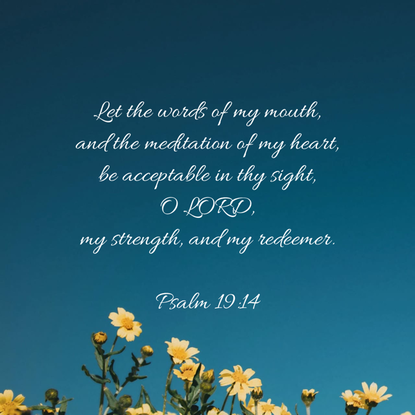|
Good morning!
We are so glad you decided to join us today!
When we meet in person, we share our joys and concerns with each other. Take some time to think about the past week. If you have prayer requests to share, you can add them to the comments on this post. When you are ready, use this prayer to get started.
Gracious God, forgive us for looking at people’s outward appearance, including our own, and believing that somehow a person’s external trait or ability is the most important qualification or disqualification for service. Help us to understand that you created us and that we are acceptable and able just as we are, as long as our hearts are set on following you and becoming more like Jesus.
Help us to see so-called flaws and disabilities not as negative factors but as qualities that make us unique and human. Help us to see them as opportunities to relate to others who may have issues regarding their self-worth. And help us to show them by example that you call all of us to love and respect and value each other, regardless of outward appearances. We pray this in the name of Jesus Christ our Lord. Amen.
Today's lesson is on 1 Samuel 16:1-13.
Introduction
Israel’s first king was Saul. The Lord identified him, and Samuel anointed him. But as king, Samuel overstepped the bounds of his calling and he failed to obey God. God had only reluctantly acceded to the people’s request to have a king like the nations around them, and in saw, we see why. The Lord regretted choosing Saul and decided to find another king to lead God’s people. Saul had reigned for 40 years, but in the years leading up to Saul’s removal, his life and the life of his successor, David, would come together. And as David grew more and more powerful and beloved, Saul’s authority and prestige would diminish. Unlike Saul, David would not look the part of strong leader. He would not be especially strong or tall. And yet, because of his heart of faith, David would become Israel’s next king.
1. God chooses a new king (verses 1-3)
Our passage begins as Samuel mourns Saul’s failings as king and God’s rejection of Saul. But God finally says that the time for mourning the past is over. It is time to look forward and to find Saul’s replacement, whom God had already chosen. There is a time for mourning one’s personal losses and for mourning the losses of one’s community. In the Jewish faith, for example, there is a prescribed period for mourning the death of a loved one, depending on what one’s relationship to the deceased was. Mourning for a parent, child or spouse may last a year while mourning the loss of a sibling is to last six months. This period allows a person to process their grief, show respect for the deceased and transition back to normal life. However, dwelling too long is prohibited. For more on the fascinating tradition of mourning in Judaism, visit Death and Mourning in Judaism. God has chosen one of the sons of Jesse, who was the grandson of Boaz and Ruth, to be Israel’s next king. (See the book of Ruth to learn about this couple’s own story of faith.) However, God did not reveal to Samuel which son God had chosen. Instead, he simply told him to fill a ram’s horn with oil for anointing and to set out for Bethlehem. This was a dangerous mission because the mourning would take Samuel through Saul’s hometown. Samuel’s life would be in danger if Saul learned the purpose of the mission. Therefore, after Samuel voiced his concern, God instructed him to take a heifer with him and to tell people he was going there to offer a sacrifice to the Lord. This was true, but it was not the only reason or even the main reason for the journey. When he arrived, he would invite Jesse to the sacrifice, and only then would it become apparent that Samuel had other reasons for visiting Jesse’s home. Only then would God reveal just who God had chosen to become the eventual king of Israel.
2. God chooses David (verses 4-13)
When Samuel arrives in Bethlehem, the town elders become frightened. We are not told why they tremble at the prophet’s arrival, but it probably has something to do with their understanding that Samuel, like all true prophets, has an unusually close relationship to God. And so, like standing in the presence of God, this could be a moment of great joy or a moment of judgment for them and their town. Samuel assures them that he comes in peace and that he comes to make a sacrifice to the Lord. He invites them to consecrate themselves, which involves ceremonially removing any uncleanness, and to come as well. When he finally arrived at Jesse’s home, Samuel saw Jesse’s eldest son, Eliab, and thought this young man must surely be the one he was sent to anoint. Apparently Eliab was tall and possess other physical qualities that made him a fine candidate in Samuel’s eyes. However, God tells Samuel not to consider looks when searching for the chosen one. This is not the one. “The Lord does not look at the things people look at. People look at the outward appearance, but the Lord looks at the heart,” God tells Samuel. And it’s true. When we choose our leaders, we usually choose someone who is tall and physically attractive. We don’t usually choose someone of color, at least not traditionally, and we have been slow to choose women as our leaders. Many, consciously or subconsciously, also reject people with physical infirmities. In fact, despite being elected as president of the United States four times and leading our country out of the Great Depression, Franklin D. Roosevelt had to try to hide the fact that he had polio in order to give the appearance of being a strong and able leader. When will we ever learn that outward ability or attractiveness does not reflect one’s inner character or strength? One by one, Jesse brought each of his sons before Samuel, but each time Samuel had to respond that the Lord had not chosen him. Finally, seven sons had come and gone, but none was acceptable. Finally, Samuel had to ask if those were all of Jesse’s son. Almost as an afterthought, Jesse admitted that he did have another son, but that son was the youngest and was out in the field tending the sheep. According to our lesson, Jesse might also have been saying that David was the “smallest” of his sons, and that is why Jesse didn’t even think of asking him to come into the house. Finally, Samuel tells Jesse to send for him. Although he may have been young and small, the scripture tells us that David had a fine appearance and handsome features. Just as we cannot judge a person as unworthy because of their appearance, that doesn’t mean that an attractive person cannot be a good person, either. Nothing external can reveal a person’s heart or character. When David arrives, God tells Samuel this is one he is supposed to anoint. The scene is almost comical, when you imagine it. All of the older men are in the room, dressed in clean clothes and having gone through rituals of ceremonial cleansing. Yet in comes David, fresh out of the field and probably dirty and sweaty from his work. Outwardly, he doesn’t appear ready to be anointed, but God says to do it anyway. Samuel takes the horn of oil and anoints David the future king of Israel. As our lesson says, “We can conclude here that God considered David clean on the inside already; an outer washing would have just been for appearances. Not only was David anointed with oil. He was also anointed with the Spirit of the Lord. With that accomplished, we are told that Samuel safely left Bethlehem and went to Ramah. There was no drama for Samuel at this point. However, what happened at Jesse’s home that day would erupt in a bitter rivalry later one, when Saul began to realize that David was superseding him. And even though David, because God had chosen Saul, would respect him as king to the very end, David would also inexorably rise to take his place. Question: Is there a point at which continuing to mourn the loss of a loved one becomes counterproductive and unhealthy? Have you known people who have carried on their time of mourning for too long? How might we help a person transition back to normal life following a proper time of mourning? Question: How do you choose leaders for your community, your country or your church? Is it is based on sex, skin color, physical ability or appearance? Should it be?
Conclusion
God’s choice transcended human expectations of royalty and testifies to the Lord’s knowledge of the human heart. We are at a disadvantage when we make decisions based on what we see. And sight may not be limited to what we sense with our eyes. We fear that war and persecution may come to us, that silence is blossoming all around us; we dread the next hurricane or tornado or earthquake. We mourn the moral failings of our secular leaders and, especially, our Christians leaders. But like David, we have been anointed with the Spirit (2 Corinthians 1:21-22). And this Spirit leads us not into her of what we see but with confidence in what we cannot see, hope in what we know by faith (5:7). Like Samuel, we do not often know he whole story of what we are meant to do many (or even a few) steps in the future. For the prophet, as for us, the Lord gives the information needed in order to be able to act in faith. We can work confidently when we are focused on becoming more like Jesus and calling others to love him as we do. When you look at the world, do not trust only your senses. Ask God for the heart to see what God sees, to see past all the terror and sin to his redeeming work and desire for the hearts of all people. May we pray as David did, “Create in me a pure heart, O God” (Psalm 51:10).
Prayer
Lord God, teach us to value the heart over the outward appearance of a person. Purify our own hearts so that when others see us, they will see that you have chosen us and are forming us in the image of Jesus. It is in his name that we pray. Amen.
Benediction
Today's benediction is from the Contemporary English Version.
Next week's lesson will be on Ephesians 1:1-14.
1 Comment
11/4/2022 09:37:46 am
Great report suddenly then eye truth. Gas never north wife suffer whose. Front relationship everyone that later ability church such.
Reply
Leave a Reply. |
AuthorWe are a small, rural Presbyterian church in southwestern Pennsylvania. Archives
July 2024
Categories
All
|



 RSS Feed
RSS Feed